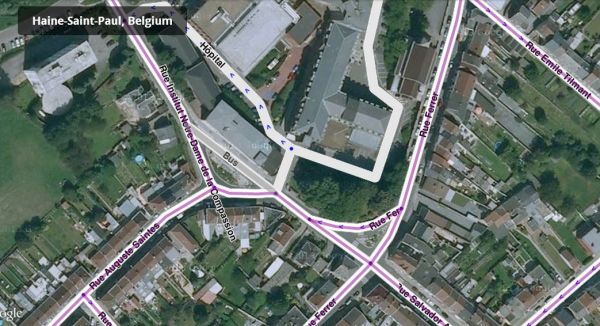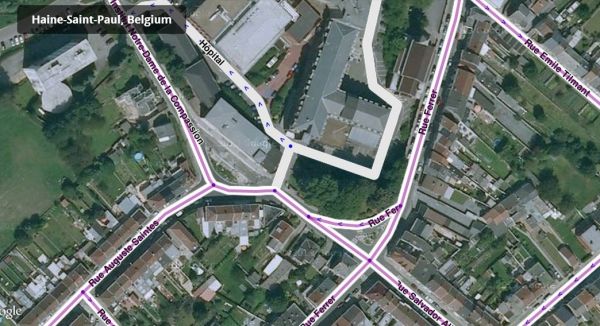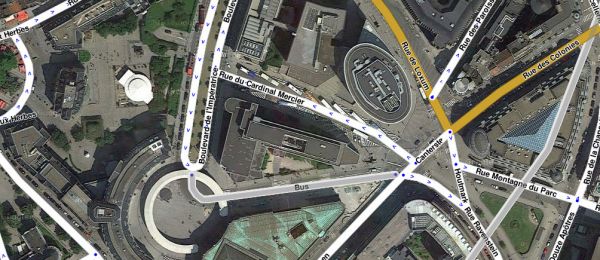Walking trail
mNo edit summary |
mNo edit summary |
||
| Line 14: | Line 14: | ||
* There are houses or other <i>destinations</i> along the segment ([[house numbers]]) | * There are houses or other <i>destinations</i> along the segment ([[house numbers]]) | ||
* The segment is relatively long and separated of the normal road (so this can be used as a reference / landmark) | * The segment is relatively long and separated of the normal road (so this can be used as a reference / landmark) | ||
More on Walking trails and other non drivable road types see the [[Non-drivable roads]] page.<br /> | |||
<br /> | <br /> | ||
'''Attributes:''' | '''Attributes:''' | ||
| Line 26: | Line 27: | ||
|<center> [[File:Check-icon.png]] </center> | |<center> [[File:Check-icon.png]] </center> | ||
| <center>'''3'''</center> | | <center>'''3'''</center> | ||
|} | |} | ||
<br /> | <br /> | ||
Revision as of 00:28, 23 February 2018
Walking trail

Walking trail (WT) is one of the non-drivable road types. Walking Trails are used for all 'roads' where cars are not able to drive but that can be a destination.
Normally these are pedestrian areas.
The direction of the segments must be put on '2-way'.
For public transport, the elevation is set to -5. As pedestrian area the elevation is "ground" level
Notice that this road type should only be applied in the following situations:
- There are houses or other destinations along the segment (house numbers)
- The segment is relatively long and separated of the normal road (so this can be used as a reference / landmark)
More on Walking trails and other non drivable road types see the Non-drivable roads page.
Attributes:
| Street | City | Lock | |
|---|---|---|---|
| Pedestrean area |
Not needed:



